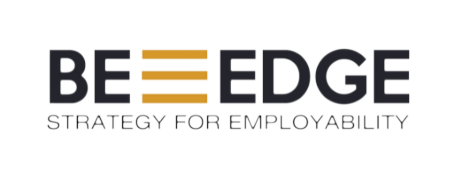
You Are a Foreigner: How to Convert It into Your Competitive Advantage
January 4, 2023
By Amir Elhelw
Let’s begin by painting a picture. You are a newly minted graduate; you have just picked up your bags and moved out to a new country in order to pursue a new business venture. You are new to this market and know only the essentials of its structure and how to go about doing business in it. You are a fish out of water trying to break in and make a name for yourself.
The question then becomes, what do you have to provide to this market that any other newcomer does not? Most people search long and hard for this answer in some external resource (land, money, name recognition, etc.). While you certainly can find your answer in these resources, sometimes the answer is as easy as looking within yourself at your lived experiences. I know how cliché this sounds, but it really is that easy most of the time.
Markets are always looking for someone with a different perspective to come in and shake up the game, especially if that person is from a completely different market. A recent MIT study finds that “per capita, immigrants are about 80 percent more likely to [open] a firm, compared to U.S.-born citizens.” While a statistic showing immigrants doing well in America is no surprise given its status as the world’s “melting pot”, this number is still shockingly high and represents the true power a foreigner can hold in the right market.
After scouring multiple websites and resources trying to put this theory into a digestible format, I have come across three main points which succinctly summarize the benefits of being a foreigner in a new market and how you can use it to your advantage.
- International Experience
- Adaptability
- Honing your Global Mindset
As a newcomer in a foreign market, you bring new ideas and opportunities that locals in the same market likely have not even considered as possible realities. This makes you a commodity, and a threat to anyone who stands in your way, and in the next few paragraphs, we will delve deeper into why this is.
International Experience
The first, and arguably most important, aspect of being a newcomer in a foreign market is the international experience you have as an outsider. In my research, I have found that there will always be demand for new global-minded thinkers, but high-quality supply will almost always be scarce. The Harvard Business Review acknowledges that, while most companies do not see knowledge of other cultures as a critical piece of experience to have, it goes on to say that “in order to keep growing, nearly every business hits a point at which they need to expand beyond borders.” All companies can benefit from someone who is able to tell them what a previously untapped portion of their customer base is thinking as well as what kinds of competition, and potential host-country problems they may run into. All of this sounds complex, but as a foreigner, you possess that ability in spades when compared to others in the same market. The Harvard Business Review goes on to say, “companies are paying attention to research finding that firms with more diverse people on staff have healthier financial performance.” It notes that most companies are actively looking for people who “bring a plethora of unique experiences, backgrounds, and knowledge to the workplace.” These requirements are the kind you get simply from growing up in a foreign country and interacting with the local population for a longer period, which is a skill that most native workers cannot claim to have.
Adaptability
Next, we move into how you transition from being a graduate to an executive in a foreign market as there are many steps between these two points; none of which could be achieved without the necessary skill of adaptability. As an international worker, you will be coming across different markets which vary greatly from each other and, while your international background is a significant tool at your disposal, it will be of no use to you if you cannot appropriately apply it in the market which you are entering. This is why being able to adapt to the market you are in is so important. You must be able to pick and choose what skills or experiences need to be drawn on in any given scenario. While I have been referencing the United States for most of my sources, some countries do not yet know the positive effect that foreigners can have on their economy and may not be so quick to welcome you as a result. This is a concept that not only applies country to country, but also business to business as some firms are still in the stage where they are focused on catering to local consumer needs and are not focused on the long-term. As a recent graduate, I am sure you’re more than capable of knowing how to navigate through periods of change and going into a foreign country is no different except for one thing; you know the change you are about to go through and have time to prepare for it. Before entering a new market, you should familiarize yourself with the local political, economic, and social issues going on in the country so that you are not completely lost upon entry. Research the field you are going into and the position it holds in the market you plan on entering. Finally, learn proper business etiquette for this new country in order to be respectful of the locals who you hope to do business with. These pre-entry tips are only some, but what I would argue to be the most important in being able to adapt to whatever situation is thrown at you upon foreign market entry. You will now have less of an opportunity to be blind-sided by economic downturns or local government pushback since you familiarized yourself with these potential issues beforehand.
Honing Your Global Mindset
Ok so you’ve done it. You have done your research, entered a new market, and gone through all the changes needed to either land a job at a large company or start the process of opening your own business in a foreign market. Now how do you make more of your unique position as a foreigner in a market past your ability to speak a different language or having knowledge of the economic and political landscape of your home country. This is what honing your global mindset is all about. Being able to apply your lived experiences in a business setting is what makes you so unique. Instead of simply being a spout for information regarding your home country, use the information and connections you have built there as catalyst for new ideas to innovate your business and field of work. Your insight is valuable, but what distinguishes you from others are the ideas you have and your capability for growth. As an international worker, you are in a unique position to be able to propose recommendations to tap into a previously unknown customer base and support these ideas with lived experience and a professional mindset.
About the Author
 Amir Elhelw is a second year undergraduate Honors Student at Northeastern University studying Business Administration with a concentration in Finance and a minor in Data Science.
Amir Elhelw is a second year undergraduate Honors Student at Northeastern University studying Business Administration with a concentration in Finance and a minor in Data Science.


